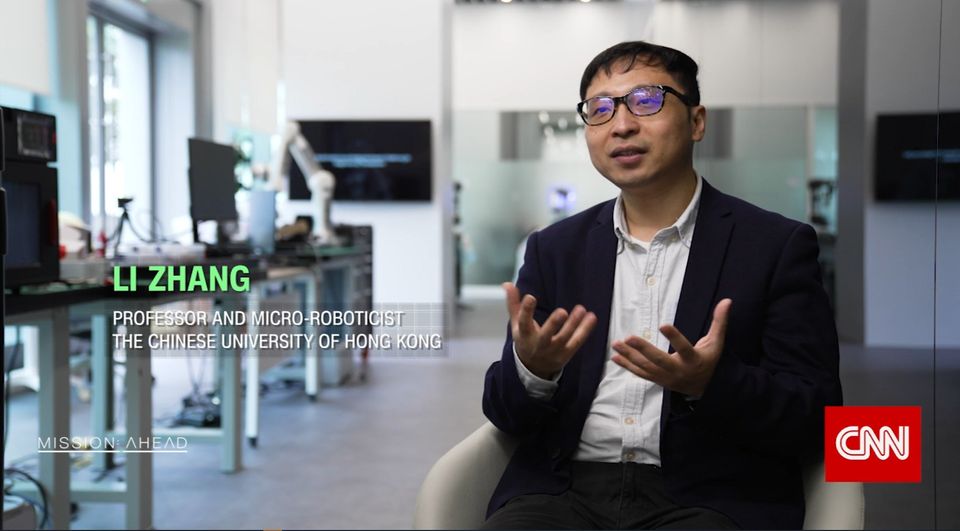Researchers from The Chinese University of Hong Kong (CUHK) scooped 17 awards at the International Exhibition of Inventions of Geneva 2022 in recognition of their innovative solutions to solve societal issues and improve people’s quality of life. Among these 17 awards, three awarded projects were led by two professors from the Faculty of Engineering.
Professor Chen Shih Chi was awarded the Gold Medal for his project, “Ultrafast oscillating blade microtome” and Professor Darwin Lau was the winner of Silver Medals for his two projects, “Cable-driven Inspection Robot for High-rise Building Façade” and “CU-Brick Robotic Brick Construction Robot”. Professor Chen and Professor Lau are both from the Department of Mechanical and Automation Engineering, Faculty of Engineering.
Professor Chen’s research interests include ultrafast laser applications, biomedical optics, precision engineering, and nanomanufacturing. His awarded project, “Ultrafast oscillating blade microtome”, is about a novel oscillating blade microtome that enables precise sectioning of various ultrasoft materials, e.g., fresh tissues, expanded hydrogels, and optically cleared whole organs that were hard to process before. Sectioning of soft tissues is achieved by exploiting the viscoelastic effect, i.e., the tissue self-stiffens at high frequency. This invention can help solve key challenges in 3D bio-imaging applications, creating huge market value for pathology and biophotonics industries.
Professor Lau focuses on the research topics in bio-inspired and manipulator robotics including musculoskeletal and humanoid robots, cable-driven robots, biomechatronic systems and building construction robots. His awarded project, “Cable-driven Inspection Robot for High-rise Building Façade” is about a mobile cable robot system with four components performing contact-based façade inspections. It simplifies the current workflow, eliminating the need for working at height and providing a quantitative, digital diagnosis. His another awarded project, “CU-Brick Robotic Brick Construction Robot”, is collaborated with Professor Adam Fingrut from the School of Architecture, Faculty of Social Science, and supported by Professor Yam Yeung from the Department of Mechanical and Automation Engineering, Faculty of Engineering. It is an automated robotic system with four primary components that constructs brick structures: a cable-driven parallel robot, an automated brick delivery system, a human-robot collaborated mortar application and a computational design framework. CU-Brick allows large-scale brick structures of complex geometry to be constructed due to its high levels of accuracy, efficiency and automation.
The International Exhibition of Inventions of Geneva is the largest global exhibition devoted exclusively to inventions. All the exhibited inventions have been evaluated by an international jury of specialists. This year, the virtual event showcased nearly 800 inventions from 25 countries and regions.









